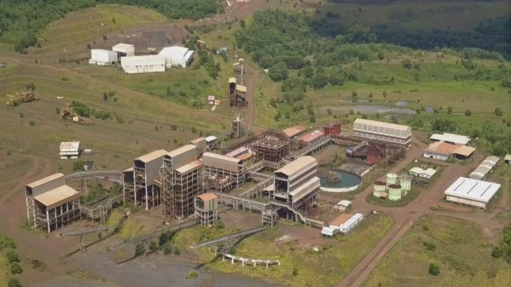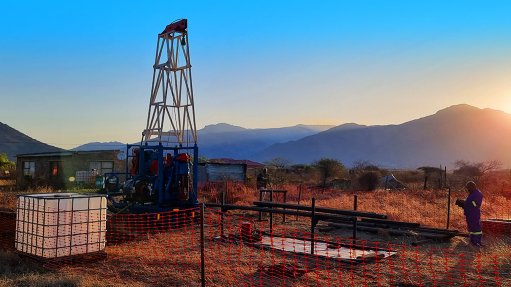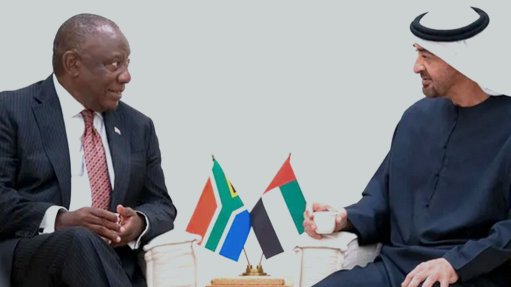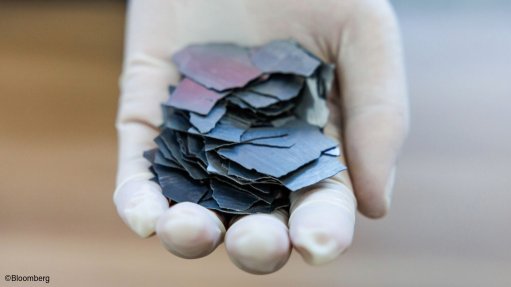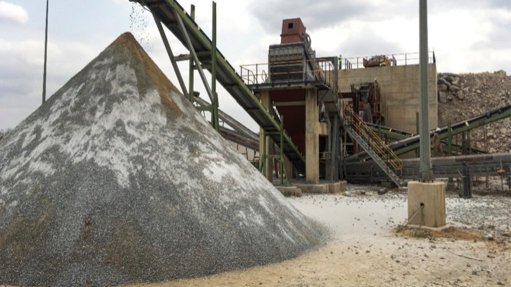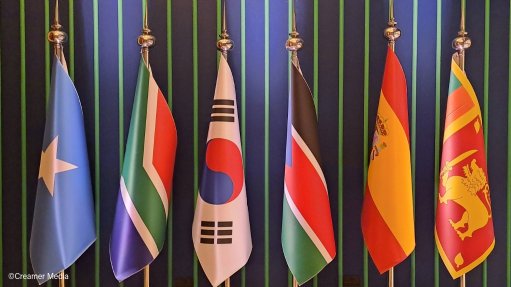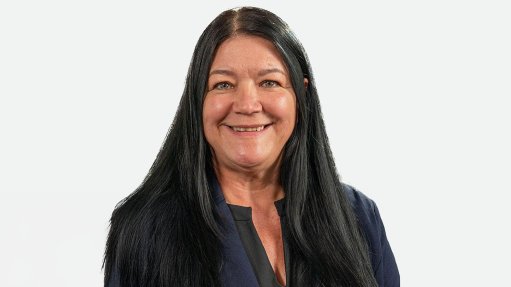Business, govt collaboration showing signs of success in addressing multiple crises

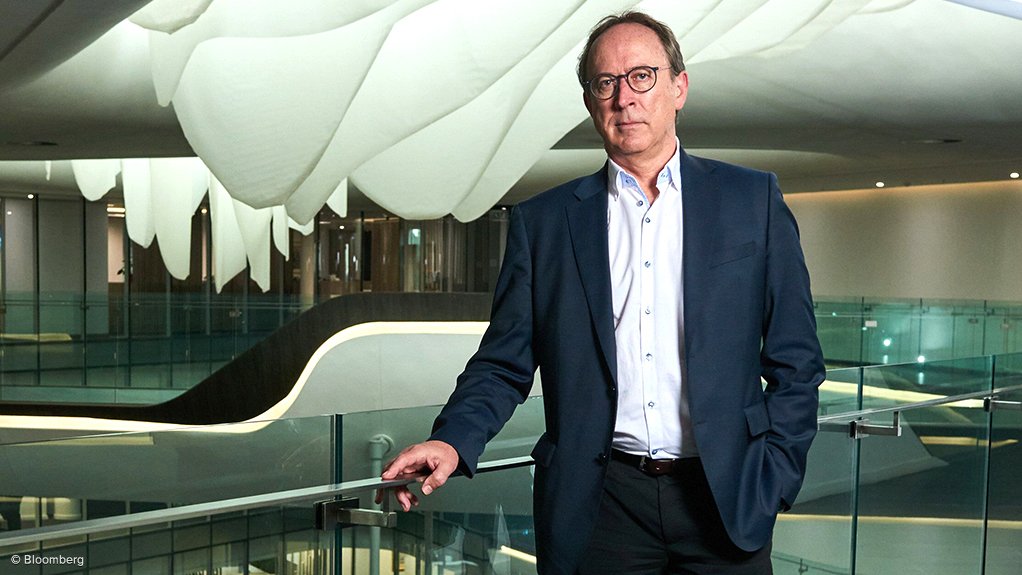
Energy Council of South Africa chairperson and Sasol CEO Fleetwood Grobler
Photo by Bloomberg
Business is working to add more than 10 GW of generation capacity to the electricity system by the end of next year, which would effectively end loadshedding in South Africa, Sasol president and CEO Fleetwood Grobler said on the first day of the Joburg Indaba on October 4.
Speaking in his additional capacity as the chairperson of the Energy Council of South Africa, he told delegates that various businesses were focusing on improving the energy availability factor and the efficiency of power utility Eskom, as well as adding new generation capacity and reforming the energy sector.
Each of these priorities involve specific actions being taken, with the overall aim being the achievement of inclusive growth in the country.
The business sphere, through entities such as Business for South Africa, is also working on longer-term goals such as bolstering transmission infrastructure and supporting deregulation of distribution.
Grobler emphasised that it had not been a case of “business coming to the rescue”, rather, business was complementing efforts in existing plans to end loadshedding. He lauded the “good work” that Eskom had been doing on its own account to resolve the energy crisis.
Minerals Council South Africa president and Anglo American South Africa chairperson Nolitha Fakude added that business leaders had rallied together in January to address the fundamental question of how business can become part of the solution to South Africa’s common economic roadblocks, which were not unique to the mining sector, but faced by all sectors.
She said business and government had proven their ability to work together with more stakeholders in dealing with crises, as evidenced by Covid-19 mitigation efforts.
“For us as business we felt it was important that we have a conversation directly with government to offer once again our support, partnership and collaboration in any way, to help make sure that multiple crises are addressed,” Fakude stated.
She mentioned that 130 CEOs signed on to ensure that energy, logistics, and crime and corruption were addressed to unlock greater economic growth and job creation, as well as build confidence in society.
Each one of these focal areas have areas of impact, including improvements in performance and reforms from a regulatory framework perspective.
Exxaro Resources CEO Mxolisi Mgojo said businesses, especially those with assets dependent on the functioning of freight rail corridors, had been capacitating Transnet to deal with issues on spares, security and understanding “next week’s business”.
He added that these efforts, through the National Logistics Crisis Committee (NLCC), had required political maneuvering in dealing with multiple officials, departments and a new Transnet board which had direct oversight on the five corridors prioritised for improvement – the coal, iron-ore and manganese, container and general freight, and chrome and magnetite corridors.
Mgojo explained that the committee would be vetting Transnet’s turnaround plan once submitted, since it would be the private sector supporting any initiatives that would be taking place, not the fiscus.
“We have begun to move the needle [on the logistics crisis],” he assured.
Presidency project management office head Rudi Dicks said government had been trying a more granular form of social compact through collaboration on specific areas, including through the Energy Action Plan (EAP).
He mentioned that government was working to address particular issues ranging from procurement to maintenance to skills shortages.
Dicks believed the NLCC and EAP were prime examples of public and private sector collaboration, while Transnet and Eskom maintained governance within their own right.
He assured that businesses were not trying to take over the functions of government, rather working with government to achieve a common goal of growing an inclusive economy.
PwC strategy senior manager and energy specialist Martin Solomon said the State, through the freight, energy and water utilities, was not able to deliver at the scale that was currently necessary.
Conducting projects collaboratively not only ensures delivery of services to society and businesses, but ensures better risk profiling, offtake and economies of scale.
Seriti Resources chief people officer Ndumi Khoza said communication among all stakeholders focused on the end goal was necessary, although these discussions were not always easy.
Another good example of public and private collaboration has been that of the Lebalelo Water User Association, in Limpopo, which comprised government and the private sector each contributing half of R25-billion to supply bulk raw water to both the mining sector and communities on the eastern limb of the Bushveld Complex.
Department of Waterand Sanitation acting deputy director-general for infrastructure management Leonardo Manus noted there were often common objectives in getting a service on the ground which mutually benefitted the commercial and the public sectors. However, this required combatting factors of mistrust head-on and putting accountability mechanisms in place.
He placed emphasis on getting the right agreements in place for continuity in future as well as to ensure legal soundness of these partnerships.
KEYNOTE INSIGHTS
In his keynote address at the conference, Diversified miner Anglo American Africa and Australia regional director Themba Mkhwanazi said only through partnerships and collaboration could the mining industry secure a sustainable future and the transformation it had been seeking to achieve over the last two to three decades.
He stressed that the mining industry had an immense role to play in driving growth and transformation. For example, in the 2021/22 financial year, the mining industry contributed R127-billion in tax out of a total corporate tax income of R318-billion, with minerals and metals making up more than 60% of South Africa’s exports.
Yet, the mining industry's contribution to the economy has been declining since 1993, with the majority of investments having been aimed at maintaining existing operations, which indicates stagnation and a lack of growth.
Mining’s contribution to gross domestic product has fallen from 10% in 1993 to 4.4% in 2022. Additionally, over the last 20 years, an average growth rate of -4.4% has been achieved.
In comparison, the agriculture sector’s growth rate has been 3.1% over the same period.
“While mining might be big and important in terms of tax, foreign exchange earnings and employment numbers, it has been marking time at best and declining at worst. In a country characterised by deep structural inequality, a declining mining industry only exacerbates these problems.
“The spirit of collaboration that the industry managed to forge with government during Covid-19 showed what is possible,” Mkhwanazi explained.
He added that the mining industry was able to spur South Africa’s post-Covid-19 recovery, including by allowing government to implement wide-ranging social support measures.
Mkhwanazi emphasised the importance of a collaborative growth path for mining to once again become an engine of growth for the economy.
However, growth and transformation were not mutually exclusive, he added, explaining that they were, in fact, mutually reinforcing.
Mkhwanazi said it was time to put transformation at the centre of the growth agenda and vice versa.
“We all agree that the structure of the South African economy must change from comprising mostly listed companies and large private champions to junior mining champions being part of the economy at every level. Transformation continues to be of great social, political and economic significance.”
He highlighted that between 2014 and 2020 alone, mining generated close to R160-billion in transformation initiatives targeting changes in ownership, employment equity, human resource development, enterprise development and mine community and housing development.
Mkhwanazi said the energy transition presented a fresh opportunity for South Africa to incorporate black-owned companies and community-based companies, in the spirit of true empowerment.
“The economic opportunity for South Africa is so great that it demands a social compact with mutual trust and benefit at its bedrock. Business and government must partner at unprecedented levels to maximise our opportunities. We must focus now on doing, action; action alone will bring about the change we all need,” Mkhwanazi concluded.
Article Enquiry
Email Article
Save Article
Feedback
To advertise email advertising@creamermedia.co.za or click here
Announcements
What's On
Subscribe to improve your user experience...
Option 1 (equivalent of R125 a month):
Receive a weekly copy of Creamer Media's Engineering News & Mining Weekly magazine
(print copy for those in South Africa and e-magazine for those outside of South Africa)
Receive daily email newsletters
Access to full search results
Access archive of magazine back copies
Access to Projects in Progress
Access to ONE Research Report of your choice in PDF format
Option 2 (equivalent of R375 a month):
All benefits from Option 1
PLUS
Access to Creamer Media's Research Channel Africa for ALL Research Reports, in PDF format, on various industrial and mining sectors
including Electricity; Water; Energy Transition; Hydrogen; Roads, Rail and Ports; Coal; Gold; Platinum; Battery Metals; etc.
Already a subscriber?
Forgotten your password?
Receive weekly copy of Creamer Media's Engineering News & Mining Weekly magazine (print copy for those in South Africa and e-magazine for those outside of South Africa)
➕
Recieve daily email newsletters
➕
Access to full search results
➕
Access archive of magazine back copies
➕
Access to Projects in Progress
➕
Access to ONE Research Report of your choice in PDF format
RESEARCH CHANNEL AFRICA
R4500 (equivalent of R375 a month)
SUBSCRIBEAll benefits from Option 1
➕
Access to Creamer Media's Research Channel Africa for ALL Research Reports on various industrial and mining sectors, in PDF format, including on:
Electricity
➕
Water
➕
Energy Transition
➕
Hydrogen
➕
Roads, Rail and Ports
➕
Coal
➕
Gold
➕
Platinum
➕
Battery Metals
➕
etc.
Receive all benefits from Option 1 or Option 2 delivered to numerous people at your company
➕
Multiple User names and Passwords for simultaneous log-ins
➕
Intranet integration access to all in your organisation







